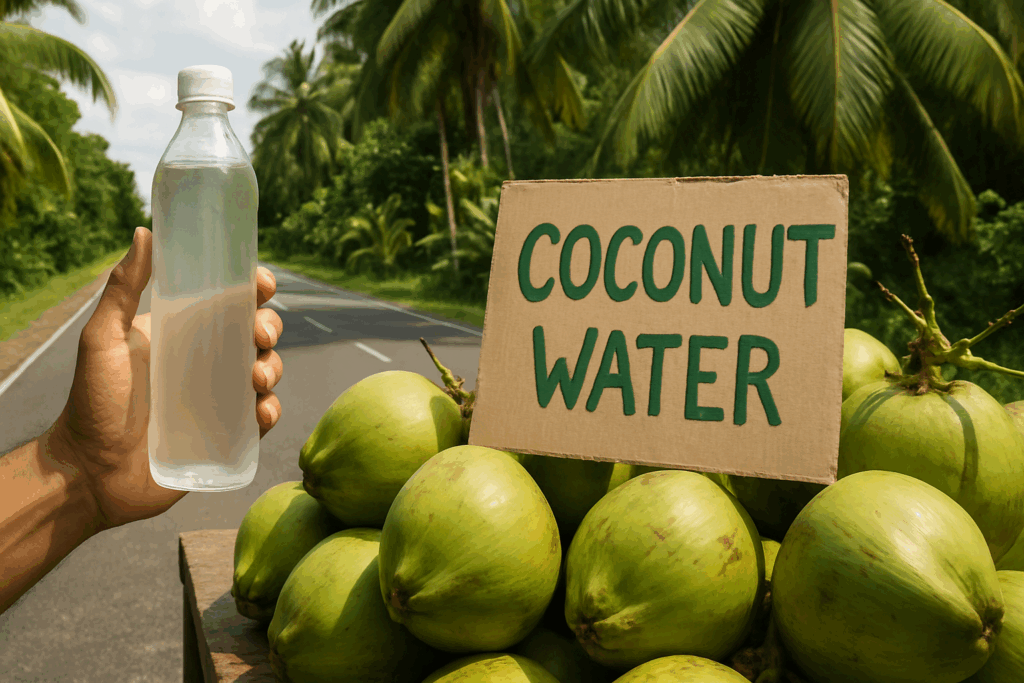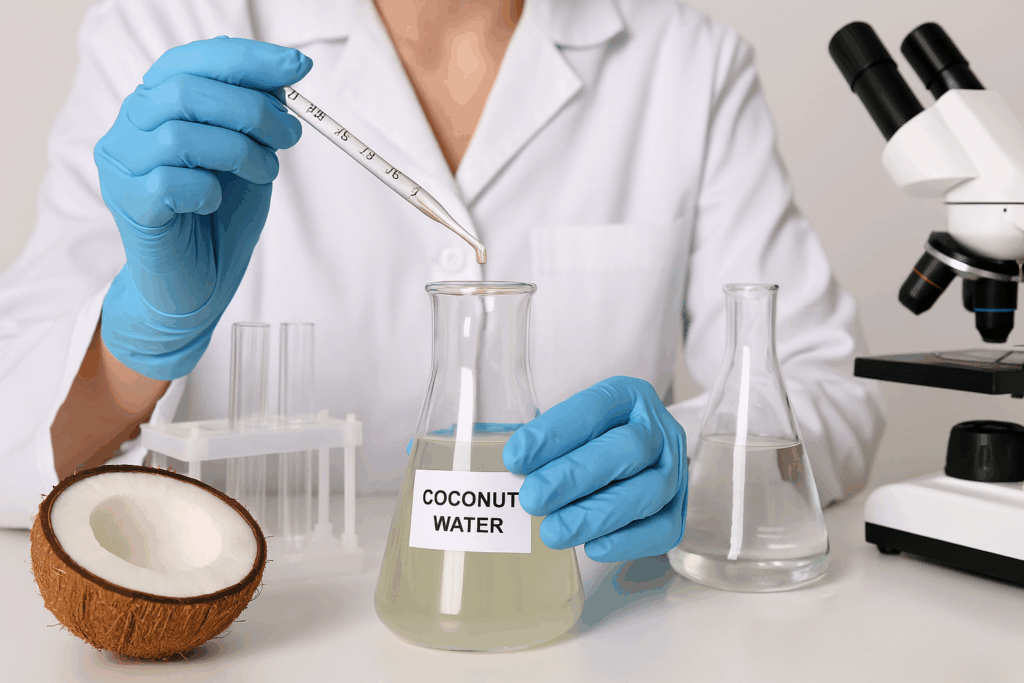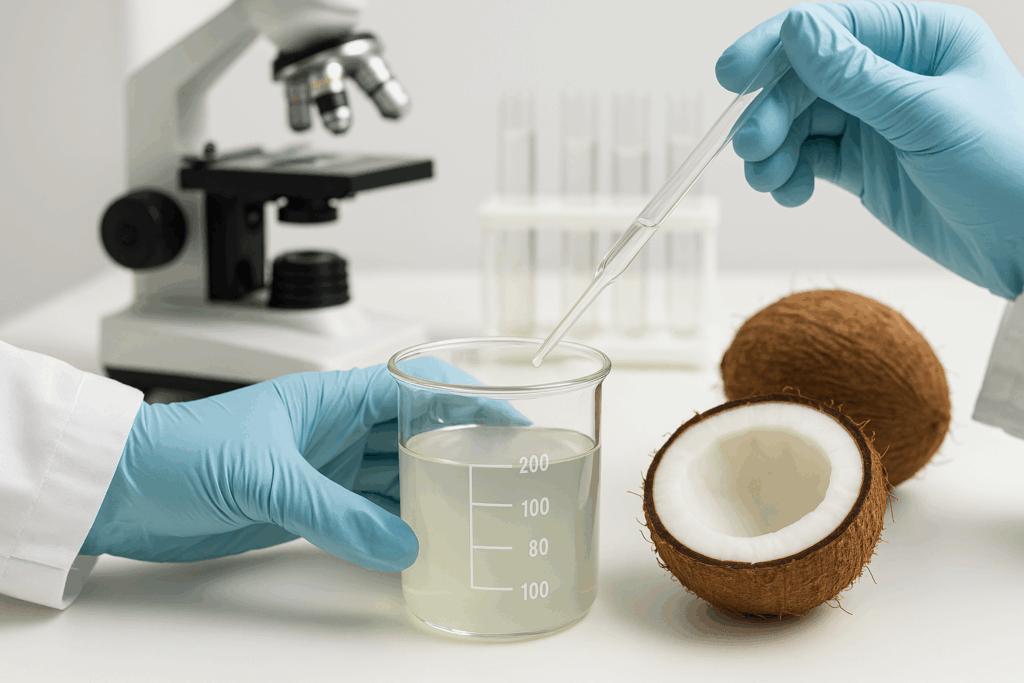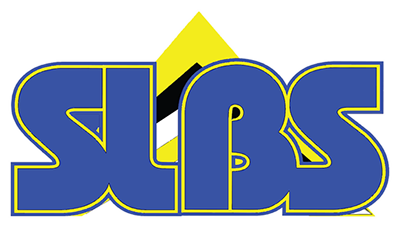Coconut Water & Street Vending
The Saint Lucia Bureau of Standards (SLBS) is the organization dedicated to safeguarding the well-being of Saint Lucia. SLBS plays a crucial role in establishing and enforcing standards to ensure safety and compliance across various sectors. Our commitment to protecting both consumers and businesses remains unwavering. In this regard, we wish to take this opportunity to inform the public about the specific guidelines and standards governing the sale and packaging of coconut water as well as selling street vended food.
As the national body responsible for setting and applying standards, testing products and services, verifying measurements, and providing certification, the SLBS ensures quality across Saint Lucia. By promoting compliance, raising awareness, and supporting businesses in meeting required standards, the SLBS works to protect consumers, enhance trade, support the CARICOM Single Market and Economy, and safeguard the environment.
The following standards provide guidance for the packaging and sale of coconut water in our country:
- SLNS/CRCP 2 (CRCP 2: 2022, IDT) Code of Practice for Packaged Natural Coconut
- SLNS/CRS 3 (CRS 3:2022, IDT) Packaged Natural Coconut Water – Specification
- SLCP 5: 2005 Code of Hygiene Practice for the Preparation and Sale of Street Vended Foods

SLCP/CRCP 2: 2022 PACKAGED NATURAL COCONUT WATER — CODE OF PRACTICE (CRCP 2: 2022, IDT)
Scope
This Code of Practice sets out recommendations for the hygienic preparation of packaged natural coconut water including harvesting, processing, packaging, storing, transporting and distributing.
SLNS/CRS 3: 2022 PACKAGED NATURAL COCONUT WATER — SPECIFICATION
Scope
This standard applies to packaged natural coconut water, as defined in clause 3, which is offered for sale and consumption. It only applies to coconut water which has been packaged in its natural state without the use of additives.
SLCP 5: 2005 Code of Hygiene Practice for the Preparation and Sale of Street Vended Foods
Scope
This code contains a series of requirements and practices to be observed in the preparation and sale in the street of food and beverages for direct consumption without further processing or preparation.
This code shall apply to places where these are prepared, points where these are sold and means of transport used.
Objective
The purpose of the Code is to ensure that foods are safe and fit for consumption thereby
protecting the health of the persons who use this type of food service.
The Code is based on the Recommended International Code of Practice-General Principles of Food Hygiene – CAC/RCP 1-1969(Rev. 3-1997)
The specifications (CRS 3) states coconuts should be:
Harvested
- Between seven to nine months after pollination.
- Free fall of coconuts shall not be allowed; coconuts shall be lowered to the ground.
It even goes on and states the chemical composition, microbiological and physiochemical limits of the water being sold. As well as the organoleptic requirement, what constitutes the water as being defective or impure, quality control, what additives are tolerated i.e. no additives. They should be free from adulterants, extraneous matter and other contaminants such as heavy metals;
- comply with the maximum pesticide residue limits established by the Codex Alimentarius Commission for similar products.
- comply with the maximum residue limits established by the CODEX Alimentarius Commission for other agents used in the growing process
Additionally coconuts should be packaged without unnecessary delay and under conditions which shall prevent the possibility of contamination/ deterioration of the product. Labelling shall be compliant with the labelling requirements and regulations for the country (SLNS 1-3: 2014 Specification for Labelling of Commodities – Part 3: Labelling of Prepackaged Foods) in which the product is manufactured, sold, used and traded and in accordance with the national or CARICOM Standard – Specification for labelling of pre-packaged foods.
Labels should have
- the name of the product shall be ‘Packaged Natural Coconut Water’;
- the label shall include the statement ‘Keep refrigerated’; and
- if frozen, the label shall include the statement ‘If frozen, thaw and shake well’.
Composition
Composed of the undiluted, natural, untreated, clear liquid endosperm of the coconut, excluding the solid endosperm.
Under the code of practice for coconut water coconuts should be:
- Examined for damage
- Washed and sanitized
- Stored indoors – 12 cm off the ground & 15 cm away from walls; max temp. of 33 C
- Stored in clean, well ventilated areas
- Stored no longer than 36 hrs after harvesting
Cutting
- Prior to cutting, coconuts should be inspected to ensure that they are free from damage.
- Cut in a manner to allow convenient collection of the water.
Filtering
- Filter into sanitized containers using sanitized filtering mechanism.
- Use appropriate materials (e.g. plastic/metal strainer, viole, muslin, cheese cloth).


These stipulations should be coupled with SLCP 5: 2005 Code of Hygiene Practice for the Preparation and Sale of Street Vended Foods which deals with hygiene, area of preparation for foods, requirements for preparation, transportation and selling and marketing on the streets. These address storage and the influence of heat on these foods for healthy consumption. The attire, and health of the vendor is also specified. They must be in good health, free of cuts, infections and skin diseases.
To maintain food safety, excessive handling of foods at the outdoor sales area shall be avoided.
The food and beverages displayed for sale shall be well protected and kept at an appropriate temperature.
The food vendor/handler shall have a general knowledge of the possibility of food borne communicable diseases and of the possible sources of food contamination.

The food vendor shall have knowledge of the factors affecting the life and death, survival and multiplication of pathogenic microorganisms in food.
These standards are available for purchase at the Saint Lucia Bureau of Standards. We encourage food vendors, coconut sales people and caterers to find out how the Bureau’s products and services can help them get a cut above their competition.
The Saint Lucia Bureau of Standards offers training in Food Safety and Handling, Hazard Analysis Critical Control Point and Good Manufacturing Practices as well as Certification for processes, products and services. This is geared towards food vendors, agrp-processors, caterers, food operators and food handlers. Come in and see how we can aid you take the next step in your operation.
